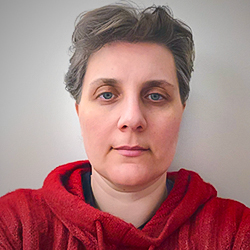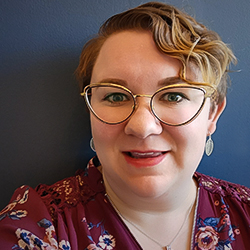In June, CNO will welcome 15 nurses to its committees. These nurses will help CNO protect the public through safe nursing practice by assisting with essential CNO work.
Each year, CNO’s Council appoints Registered Nurses (RNs), Registered Practical Nurses (RPNs) and Nurse Practitioners (NPs), from all practice areas and with diverse expertise, to sit on our committees. Working together with government appointed members of the public, they make key decisions that affect patient safety and regulate nursing in Ontario. Nurses on the Registration Committee, for example, assess an applicant's qualifications to practice nursing in Ontario. Nurses on the Quality Assurance Committee work with members going through the Quality Assurance assessment process.

Nazlin Hirji, RN
Nazlin Hirji, RN, Patricia Nowicka-Bujko, RPN, and Sarah Louwagie, RPN, are all looking forward to joining the Discipline and Fitness to Practise committees. For Hirji, putting her name forward for a CNO committee was a clear way to have a big impact for patients. “This feels like the closest way to influence nursing practice and make a difference broadly. To a nurse,
there is no organization more important from a regulatory perspective than CNO. It feels meaningful and impactful.”
Nurses working on the Discipline Committee hear cases about alleged professional misconduct and/or incompetence. The Fitness to Practise Committee determines whether a nurse is suffering from a physical or mental condition or disorder that is affecting, or could affect, their practice, and if so, what action may be necessary to protect the public.
In addition to the above committees, nurses also can join the Inquiries, Complaints and Reports Committee, which screens matters related to public complaints or information CNO receives through reports. New committee member Patricia Nowicka-Bujko, RPN, says she was surprised by the breadth and depth of the ways CNO safeguards patient safety.

Patricia Nowicka-Bujko, RPN
“I didn’t realize how extensive the committees were, I thought it was just Investigations, just the Discipline committee. I read The Standard, and, like a lot of nurses, I go check the Discipline Decisions section to see what’s there. So, I was blown away, in a positive sense, to learn there was much more to it.”
Committed to patient safety
When assessing potential nurses for committees, our goal is to identify those who show a commitment to acting in patients’ best interests, and who understand how nurses’ practice, behaviour and health can affect patient safety.
Nurses from a variety of practice areas all bring their unique insights to the table. Nowicka-Bujko has a decade of experience working as an RPN in primary care. She says that bringing your knowledge, experience and a willingness to do your best in any situation is something nurses are familiar with. “As a nurse, you always go to do any work, wherever it is. And you hope that your own experience means you can add to whatever you walk in to.” She says that the key to taking a step forward and getting involved is to keep an open mind. “Learning is part of nursing!” she says.

Sarah Louwagie, RPN
For Sarah Louwagie, RPN, putting her name forward for committee work was a chance to gain new insight and have an impact for patients. “I feel it is such a privilege to be part of the nursing profession. We are there for people’s best and worst moments. At the same time, being in a self-regulated profession is a big public responsibility. Serving on a committee is what I feel I can contribute to upholding this responsibility, so we as nurses can keep being trusted to enter into the lives of others in our professional capacity,” she says.
You can learn more about the work our committees do on our Committee page. We recruit new nurses for our committees every fall, so if you’re thinking about getting involved, watch our short video series to learn more. We’ll share more information in upcoming issues of The Standard.